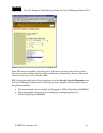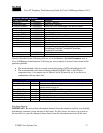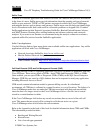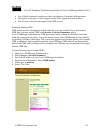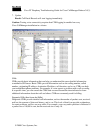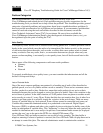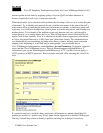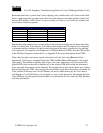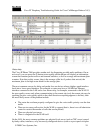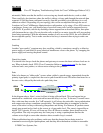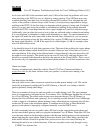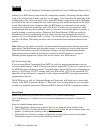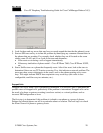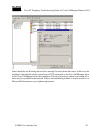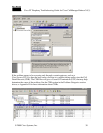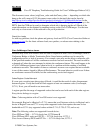
Cisco IP Telephony Troubleshooting Guide for Cisco CallManager Release 3.0(1)
© 2000 Cisco Systems, Inc. 24
i Button Help
The Cisco IP Phone 7960 provides another tool for diagnosing possible audio problems. On an
active call, you can press the i button twice rapidly and the phone will display an information
screen that contains packet receive and transmit statistics, as well as average and maximum jitter
counters. Note that on this screen, jitter is the average of the last 5 packets that arrived; the
maximum jitter is the high-water mark for the average jitter.
The most common sources for delay and packet loss are devices where a higher speed interface
feeds into a lower speed interface. For example: a router may have a 100 Mb fast Ethernet
interface connected to the LAN and a slow frame-relay, for example, connected to the WAN. If
the poor quality occurs only when communicating to the remote site (only the remote site may be
reporting the poor voice quality while in the other direction everything appears to be fine), then
the most likely causes of the problem include:
• The router has not been properly configured to give the voice traffic priority over the data
traffic
• There are too many calls active for the WAN to support (that is, there is no call admission
control to restrict the number of calls that can be placed)
• There are physical port errors
• There is congestion in the WAN itself
On the LAN, the most common problems are physical-level errors (such as CRC errors) caused
by faulty cables, interfaces, or by incorrectly configured devices (such as a port speed or duplex



